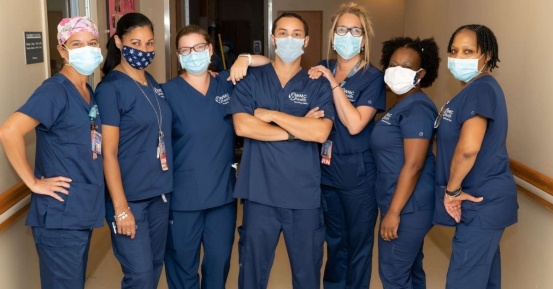The nursing profession globally faces an alarming shortage, significantly affecting healthcare delivery and patient outcomes. As the demand for skilled nurses surges, driven largely by an aging population and the complexity of modern medical care, it has become crucial to devise effective strategies for training new nursing professionals.

Accelerated one-year nursing programs have emerged as a practical solution, enabling individuals to swiftly transition into nursing careers.These intensive pathways not only help satisfy urgent workforce demands but also provide career changers an efficient route to enter an essential and rewarding field. This article will delve into how these programs are reshaping the nursing landscape.
Defining Accelerated One-Year Nursing Programs
Accelerated nursing programs specifically cater to individuals who hold a bachelor’s degree in a non-nursing discipline, aiming for a swift transition into the nursing profession. Completing these programs usually takes just one year, distinguishing them from traditional nursing degrees that typically require two to four years. The condensed format of accelerated nursing education focuses on providing intensive coursework and clinical training in a fast-paced environment, necessitating full-time engagement from students. In these programs, students are not only given a theoretical foundation but also integrated clinical experiences, which allow them to apply their learning in real-world patient care settings from the outset. The rigorous curriculum emphasizes essential nursing skills and knowledge, ensuring that graduates are well-prepared to enter the workforce and effectively address the pressing nursing shortage. This combination of rapid training and practical engagement offers a compelling option for career changers eager to make a significant impact in healthcare.
Admission Criteria for Accelerated Programs
To gain admission into accelerated nursing programs, candidates typically need to possess a non-nursing bachelor's degree from an accredited institution. This requirement is essential to ensure that students already have a foundational understanding of critical concepts relevant to nursing. Programs often set a minimum grade point average (GPA) expectation, commonly around 3.0, and may require entrance exam scores, such as those from the Graduate Record Examination (GRE). Strong letters of recommendation from academic or professional references can further bolster a candidate's application, demonstrating their readiness for the challenges of this intensive educational pathway.
Comprehensive Training and Skill Acquisition
Accelerated nursing programs are meticulously crafted to endow students with essential nursing knowledge and skills within a compressed time frame. Coursework delves deeply into core nursing principles, such as anatomy, pharmacology, and patient care, providing a comprehensive understanding of healthcare fundamentals. A vital component of these programs involves hands-on clinical experience, where students engage directly with patients under the supervision of seasoned nursing professionals. Partnerships with local healthcare facilities greatly enhance this training, allowing students to translate classroom knowledge into practice across diverse healthcare environments, equipping them for the demands of nursing careers. Furthermore, the use of simulation labs is pivotal in developing clinical skills, enabling students to navigate realistic patient care scenarios without the risks associated with real-life interactions. By leveraging cutting-edge technology, students refine their clinical competencies, enhance their critical thinking abilities, and gain the self-confidence necessary to thrive in actual clinical settings. This combination of theoretical instruction and practical application cultivates well-rounded, capable nurses ready to tackle contemporary healthcare challenges.
Promising Career Paths for Graduates
Graduates emerging from accelerated nursing programs find themselves entering a robust job market characterized by a pronounced demand for registered nurses (RNs). The Bureau of Labor Statistics projects a 6% growth in employment for RNs from 2021 to 2031, largely resulting from an aging population and increasing healthcare needs. Graduates have the flexibility to pursue a variety of career avenues, such as hospital nursing, community health, or specialized roles in fields like pediatrics or geriatrics. Additionally, the nursing profession presents ample opportunities for specialization and career progression, allowing nurses to transition into administrative, educational, or advanced practice roles, further boosting job satisfaction and economic potential.
Embracing the Future of Nursing
Accelerated nursing programs provide an efficient and impactful pathway to a fulfilling career, addressing the pressing nursing shortage while transforming individual lives. With comprehensive training packed into just one year, these programs are ideally suited for individuals eager to initiate a meaningful career change. Those considering a transition into nursing should explore the possibilities offered by these dynamic programs and take a step towards becoming part of a vital solution to the healthcare industry's challenges.





